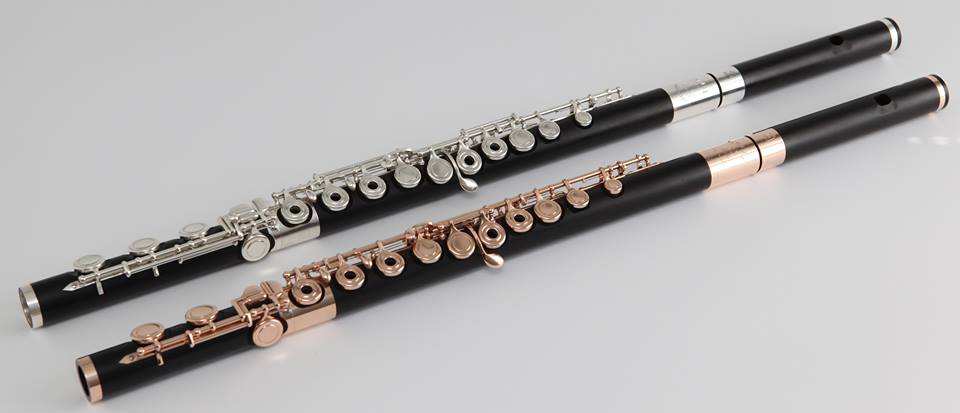The Abell Flute

The Abell Flute is a modern Boehm-system flute manufactured primarily from African Blackwood and Sterling silver with other tropical hardwoods and precious metals as options. Utilizing a modern scale and headjoint design based on the work of Albert Cooper, the Abell Flute is suitable for all musical styles from Baroque to Contemporary and in all musical settings from Solo to Orchestral.
Price List (January 2025)
| African Blackwood with Sterling Silver Mechanism: | |
|---|---|
| C-Foot | $17,650 |
| B-Foot | $18,250 |
| Split-E mechanism (Offset-G only) | add $1,400 |
| C♯ trill key | add $1050 |
| additional B foot | $3,950 |
| additional C foot | $3,350 |
| additional D foot | $1150 |
Please specify when ordering:
French (open hole) model or Plateau (closed hole)
Offset or in-line G keys
Pitch (A-440, A-442, A-444)
Wood
- African Blackwood (Dalbergia melanoxylon)
- Mopane
- Cocuswood (call for availability / pricing)
Additional Information
The price of the flute includes the following:
- One black leather, velvet-lined case with nylon, velvet-lined cover, and a cleaning rod.
- Insurance and postage for shipping within the USA.
Prices for ornamental engraving and custom orders on request.
Prices for flutes and headjoints are set at the time of production, not on placement of an order, and are subject to change. Flutes must be paid for in full to begin production, and notice will be given prior to start of production. All flutes manufactured by The Abell Flute Co. are considered custom orders and are non-returnable and non-refundable.
Current delivery for new flute orders is between 8 months to 1 year, depending on the specifications required. The prices listed are for instruments sold in the US only and do not include any additional VAT and/or Customs duties when the instrument is shipped outside the US. For orders placed outside the US, please contact one of my representatives for current pricing.
The Abell Flute Co. can also provide any necessary documentation regarding your instrument (date of production, materials used, appraisal, etc.) at no charge. Please contact us using the contact information provided below.
To place an order, please contact the Abell Flute Co. directly from the information provided below.
Update: As of December 2, 2019, CITES removed the Rosewood family (Dahlbergia) from its list of regulated items when used for musical instruments and parts. There are no restrictions for manufacture and sale of musical instruments made from the Rosewood family.
Care and Maintenance
The Abell Flute Co. recommends that your Abell flute be serviced for the standard Clean, Oil and Adjust (COA) service at least once a year . This service includes disassembling the flute mechanism, cleaning and oiling the wood body and footjoint, cleaning and oiling the mechanism, and making any necessary adjustments to the pads and/or mechanism connections.
Recommended daily care instructions:
- Before beginning each playing session, open the case for a few minutes and let the flute acclimatize to the room before assembling the instrument. Once the playing session is finished, swab any excess moisture from the instrument and let the disassembled flute sit in its open case for a few minutes before closing the case.
- Swab out any excess moisture from the instrument after each playing session.
- Wipe the keywork and body with a clean cotton or micro-fiber cloth as needed.
- Do not oil the wood on the main body or footjoint; we will do any necessary oiling during the annual COA service.
- Do not oil the keywork; we will do this also during the annual COA service.
- Please do not keep any humidifiers inside the case with the flute.